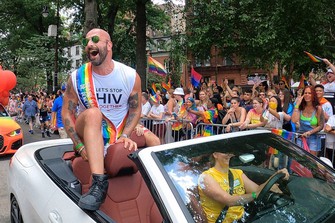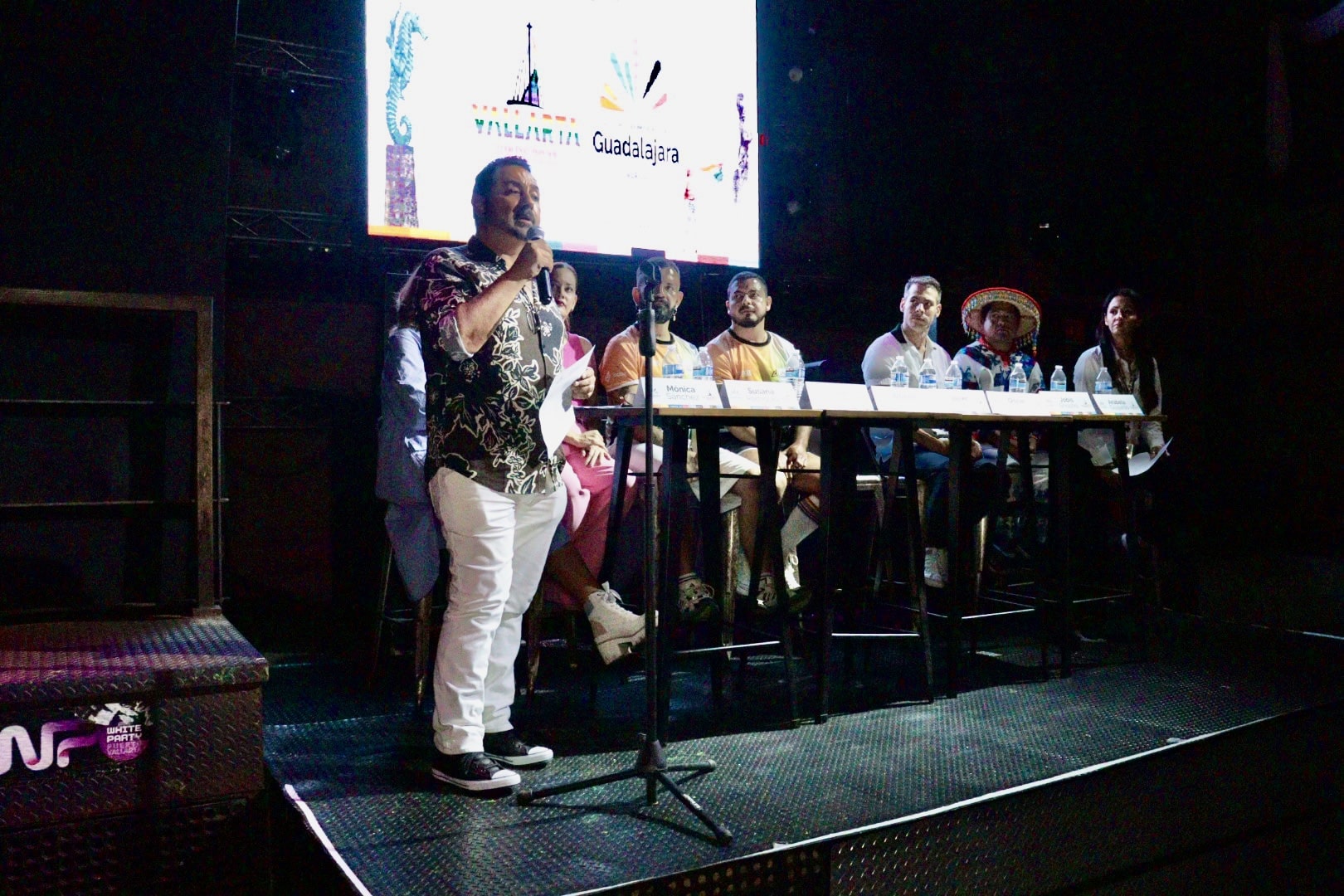By David McNeill
When I first came to Japan in the 1990s, the gay community seemed invisible. There was no annual gay-rights parade of the type seen in many parts of Europe. There were no openly gay national lawmakers or sports figures. Few seemed to be campaigning for the rights of sexual minorities. On television, gay stereotypes and discrimination were common: the word “okama” was still widely used in a derogatory way.
So, I was taken aback when I was commissioned later to write a feature about 2-Chome in Tokyo’s Shinjuku district and found one of the world’s densest and most diverse concentration of gay bars and clubs: roughly 300 businesses squeezed into a couple of blocks, including sex shops and watering holes catering to a wide array of tastes — known as kei (specialty). It was largely unknown to the straight world beyond its borders.
There were bars for overweight men, transvestites, spankers, the hirsute, men over 70, older men who wanted to be with younger men. One establishment specialized in guys who looked like pin-up idols; another catered to clientele from the countryside. “I’ve even heard of one place that is for busaiku-kei” (ugly men), Taq Otsuka, author of several books on Japan’s gay told me, laughing. “There isn’t much you can’t find here.”
I visited a bland hotel tucked off a nearby back street and saw a steady stream of customers in the salaryman’s uniform of dark suit, sensible shoes and overcoat file quietly through its innocuous doors. Only they passed through the lobby, cheerily adorned with scenes from a sex movie depicting a portly company president being diligently serviced by a young apprentice, basically anything went.
Guests from across Japan came to soak in the sauna/bathtub then make their way up semi-naked through the seven floors, where porn flickered 24 hours a day in dimmed communal sleeping areas equipped with futons.
I wrote afterwards that 2-Chome is in some ways, very Japanese: discreet, compartmentalised; fastidiously careful about order and details. Live and let live as long as the outward appearance of things is maintained. “This is a country that happily lives with contradictions,” said Otsuka. “It has its one way of doing things that people sometimes don’t understand.”
While 2-Chome was emerging as a refuge for homosexuals in what was formerly a red-light district, British police were still arresting gay men in toilets and public parks. Unlike many other countries, Japan did not have an anti-sodomy law (since the enforcement of the old Penal Code in 1882,) nor did it have what Mark McLelland, author of “Homosexuality in Modern Japan: Cultural Myths and Social Realties” called the “anti-homosexual rage” of many Christian cultures, the lethal fuel for homophobia and gay-bashing.
Though tainted by the usual agonies of personal identity and need for secrecy, gays and lesbians in Japan didn’t suffer the same outright repression as in other parts of the world (Britain’s anti-sodomy law was not repealed until 1967).
While Japan has been comparatively laidback about its sexual preferences, however, it has also lacked the political and social campaigning that has helped transform the lives of homosexuals elsewhere. Gayness was and is still largely seen as a personal lifestyle choice, not something to be flaunted or argued over on the streets and in parliament. That’s one reason, I guess, for Tokyo’s relatively low-key gay rights parade.
I’ve heard people say that social transformation happens quietly in Japan without the need of the fireworks or violence that blights movements in the West. And it is true that life for members of the Japanese LGBT community is being transformed. In June, Tokyo became the latest city to issue “partnership certificates” to same-sex couples. Eight other prefectures have introduced the system. There were four openly LGBT candidates in the last general election.
Yet, many gay people still face hardship, bullying and discrimination. Taiwan, not Japan, became the first Asian country to legalize gay marriage in 2019. Japan is the only G-7 country that does not allow same-sex unions. And like Christian America, there is still resistance to such a legal change in some quarters, particularly among conservatives who want to preserve the traditional family.
Many Mainichi readers will have read about a 90-page pamphlet circulated among LDP lawmakers that described sexual minorities as suffering from a “psychological disorder.” It’s not clear how much support this bizarre old discredited trope, arguing that homosexuality can be “cured,” has within Japan’s ruling party. But even its existence is shameful and a sign that the battle for sexual equality in Japan is far from over.
PROFILE:
David McNeill was born in the U.K. in 1965, and has Irish nationality. He received a doctorate from Napier University in Edinburgh, Scotland. He lectured at Liverpool John Moores University, and later moved to Japan in 2000. He was a visiting researcher at the University of Tokyo, and has been a Tokyo correspondent for The Independent and The Economist newspapers, among other publications. He took up a position as professor in the Department of English Language, Communication and Cultures at University of the Sacred Heart, Tokyo, in April 2020. He is co-author of the book “Strong in the Rain: Surviving Japan’s Earthquake, Tsunami and Fukushima Nuclear Disaster” (with Lucy Birmingham), which was published in 2012 by Palgrave-Macmillan. A Japanese version was published in 2016 by Enishi Shobo. He enjoys cycling and sometimes travels around the Miura Peninsula in Kanagawa Prefecture and Lake Biwa in Shiga Prefecture.











